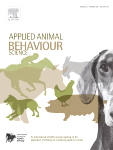Document type : Written answer published in the Journal officiel de la République française
Authors: Question: Loïc Dombreval (La République en Marche - Alpes-Maritimes). Answer: French Ministry of Agriculture and Food
Question: Mr Loïc Dombreval draws the attention of the Minister for Agriculture and Food to the situation concerning mobile abattoirs in France. In the early 1970s, France had around 1,200 abattoirs, a number that has continued to decline to this day. The closure of public abattoirs, the lack of profitability, and the changes required by new health, safety and animal welfare standards have all contributed to the fact that there are now only 250 abattoirs in France. This sparser network necessarily means that animals have to travel further to be slaughtered, 400 km on average, which is obviously problematic for the welfare of the animals, which are subjected to many hours of stress in lorries, in conditions that are also conducive to the transmission of disease. The lack of slaughterhouses is also a contributing factor to geographical inequalities for farmers, where less well-off farmers are forced to have their animals transported further, and therefore more expensively, and with less knowledge of transport and slaughter conditions. Given these problems, we can welcome the fact that the recovery plan has taken the modernisation of abattoirs in hand. And, although it is absolutely essential to focus on permanent structures, the recovery plan does not specify whether its funds can be used to encourage use of mobile slaughterhouses, which are a real innovation to achieve more ethical, fairer and more sustainable livestock farming. As part of this process, the first mobile slaughterhouse project in France is being led by a Burgundy farmer, Emilie Jeannin, who has done an extraordinary job, and who has put together a convincing proposal to government which has been given the green light. The farmer also succeeded in attracting public and private funding which has allowed her project to be up and running now, with activity starting in spring 2021. A fleet of three lorries will travel from farm to farm to slaughter animals locally, removing the need to transport them and allowing the farmer to have access to the whole process. The Court of Auditors has also judged this method of slaughter to be of particular economic interest (annual report 2020). Consequently, he asks him, first, to inform him of the measures that have been put in place to support this first mobile abattoir in France and the many others that will hopefully be created in the future and, second, to state whether the recovery plan will be able to help the development of this new slaughtering model, which has so many positive features.
Answer: The abattoir modernisation plan that has been implemented to support investment has several goals: improving animal welfare in abattoirs, strengthening the competitiveness of the sector, and improving working conditions. The Government wanted this action to also benefit innovative slaughtering systems, such as mobile abattoirs to assist in developing local business networks. Thus, the "France Relance" plan provides support for the design of these projects and the drafting of applications for their approval on the one hand, and the purchase of materials and equipment on the other. In this context, aid was granted to support the creation of the first mobile abattoir in France, in the Côte-d'Or, through a project called " le Bœuf Ethique". This assistance covers the acquisition of the mobile slaughter unit for large cattle and the training of employees. In its 2020 annual report, the Court of Auditors notes that new slaughtering methods and new management methods, in particular mobile slaughtering units, could provide alternatives to public abattoirs which are financed solely by the State and local authorities. However, as the Court of Auditors reminds us, any pilot project involving mobile abattoirs implemented under the EGALIM law (art. 73) must 'be subject to an evaluation addressing, in particular, its economic viability and its impact on animal welfare'. The present pilot will run for four years from the date of the decree implementing Article 73 on 15 April 2019. The evaluation of the pilot has been entrusted to an independent service provider. It will form the basis of a government report to be submitted to Parliament by 16 October 2022 at the latest. It will thus make it possible to assess the economic interest of these systems. The State is therefore supporting innovative slaughter projects. We must now wait for the results of the current testing of these mobile abattoirs before drawing objective conclusions on the development of this slaughter method.






